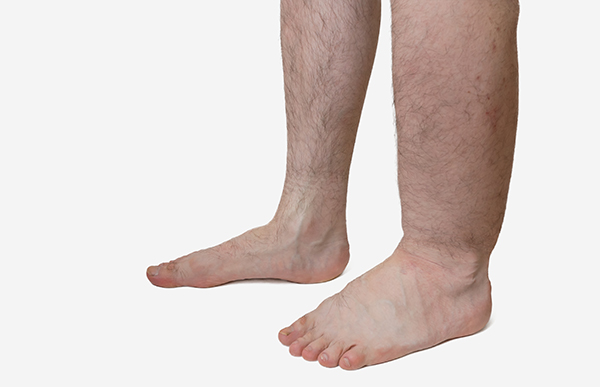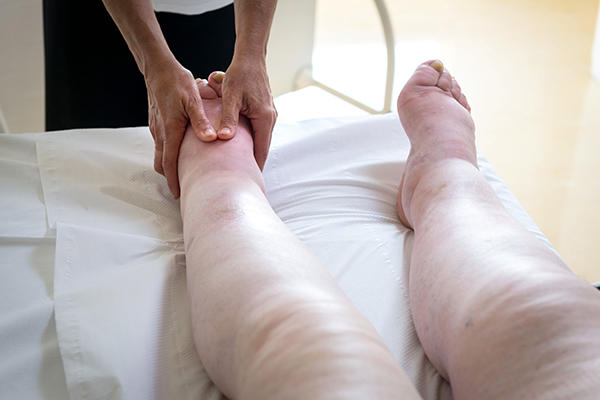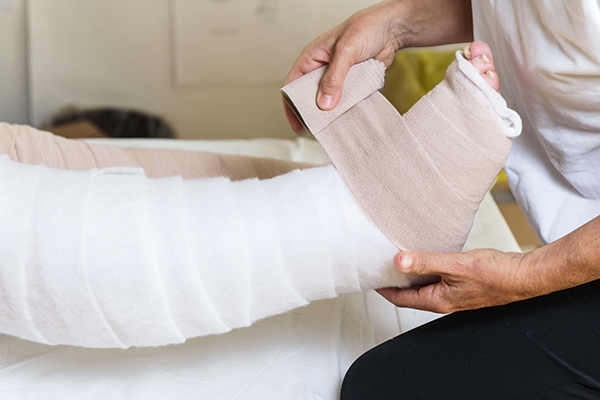What Is The Lymphatic System?
The lymphatic system is comprised of vessels which return lymph (clear/colorless fluid) from tissue spaces throughout the body to large veins in the neck. The role of lymph is to remove excess fluid, proteins, bacteria, viruses and waste products from body tissues and interstitial spaces. About 2 liters of tissue fluids a day are returned via the lymphatic vessels to the blood stream. Lymph nodes filter lymph prior to its return to the blood stream, and produce lymphocytes which are important in fighting infection.

What is the difference between primary and secondary Lymphedema?
Primary lymphedema is an occurrence of swelling without a known cause. It may be present at birth, or occur later in life (lymphedema precox <35 years or lymphedema tarda >35 years of age).
Secondary lymphedema is when the etiology of swelling is known. Causes of secondary lymphedema can be excision of lymph nodes, status post radiation therapy, trauma, chronic infections or progression of a malignant tumor hindering lymph flow. The most common secondary cause in the United States is as a result of breast cancer therapy.

How is Lymphedema treated?
With Complete Decongestive Therapy (CDT) composed of the following four principal components:
- Manual Lymph Drainage (MLD): a gentle form of massage which redirects lymph toward healthy lymph nodes and vessels to be returned to the vascular system.
- Compression: short stretch bandages are used to maintain the effects of manual lymph drainage, to assist muscles in the return of lymph, to break up fibrotic (hard) tissues, and compensate for the diminished tissue pressure of skin affected by lymphedema. At the completion of the intensive treatment cycle, elastic support garments are ordered to use in place of the bandages during the day.
- Therapeutic Exercise: Activates muscles to assist in the decongestion of the swollen body part, increases lymph flow and dilates lymph vessels.
- Skin/NailCare: Patients are educated on prevention, signs and symptoms of infection. It is important to prevent infection at any cost, as immune function is compromised in the given body part affected by lymphedema.

